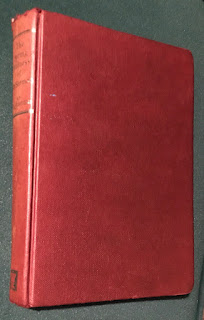Hard to summarize any single given theme for 2023's reading. I was all over the map. Lots of new stuff and lots of my old favourites. I continued to move forward on my fantasy series reading with another Robin Hobb trilogy (The Tawny Man, 3rd trilogy now two more left to go) and 4 more read in Lois McMaster Bujold's Vorkosigan saga. I also increased my history and non-fiction to 12 including two massive histories (one of the world and the other of Iran)
Here are my diversity stats. Out of 93 books:
- 28 were written by women
- 10 by Canadians (including Jane Jacobs in there as an honorary Canadian and because it was about Quebec)
- and 6 by writers of colour (yikes!)
Lowlights
The Bamboo Blonde saddened me to learn that Dorothy B. Hughes early mysteries are just not good. The books are not that interesting or exciting and she is not able to transcend the sexism of the time. The Sun Chemist also bummed me out that Lionel Davidson though interesting as a writer of "thrillers" that often concerns Israel and Jewish characters with real history are just not that thrilling.
The real bummers were National Lampoon's The Paperback Conspiracy just the worst kind of mean, stupid humour reeking with self-congratulatory privilege and smugness. These guys thought they were the cool guys in Animal House when they were actually the uptight prigs. Coming a close second, though way less hateful, was All the King's Men. Just so much empty, repetitive wanking I guess from a time when you could convince the Pulitzer voters that run-on sentences meant depth if you are from the south.
Highlights
For non-fiction, Abbas' history of Iran was incredibly informative and an amazing combo of real history and readability. Jane Jacobs A Question of Separatism which I went into with the deepest skepticism really floored and surprised me in that it argued for Quebec's independence and pretty much convinced me as well.
For fiction, I was really pleased to discover some new favourites in my preferred genres. Ross Macdonald's The Zebra-Striped Hearse just had so much great detecting and beautifully captured the time and place of pre-60s California. The Hot Spot was great but it was the hilariously ironic ending which really did it for me, a noir fate fare worse than death. For manly war action, The Heights of Zervos was a great find for combining excellent on-ship intrigue in the first half and then tough, gripping war action for the second. It's too bad his later books are supposed to be quite bad. Finally, The Runaways perfectly captured the evocative adolescent escapism of YA fiction with the practical benevolence that is the best of British culture.
All in all a very enjoyable year of reading. Much more awaits me in 2024 as my on-deck shelf will not shrink.
 |
| Like my waistline, not shrinking |












































